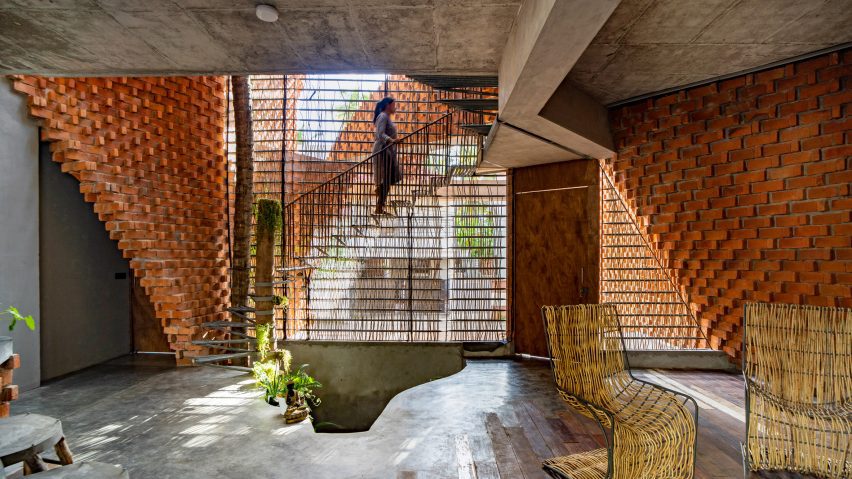
Wallmakers founder defends "rigorous" learning process of unpaid internships
Indian architect and Wallmakers founder Vinu Daniel has defended the use of unpaid internships, which he claims have an important educational benefit, following criticism on social media.
Daniel defended his position following several comments on a post on his Instagram account, which has since been deleted, which criticised the practice.
Daniel confirmed to Dezeen that people join his studio unpaid but said that he considered them to be students and that his studio starts paying them once they have gained the necessary skills in the sustainable construction techniques that the studio specialises in.
"Anyone who enters our practice is essentially a 'student'"
"Wallmakers is an unconventional sustainable practice operating without an office," Daniel said.
"We travel from site to site with our skilled masons and workers, building our projects. Unfortunately, architectural colleges in India do not teach or practice sustainable technologies."
"Therefore, anyone who enters our practice is essentially a 'student' and we have to teach them our techniques," he added. "After learning, they become salaried members of the firm."
Daniel said that people joining his studio were trained by architects along with other skilled tradespeople to gain skills in sustainable construction.
"The learning process is rigorous," he said. "In addition to the fact that we can take only a limited number of people at a time, life at the site is hard, strenuous and not everyone's cup of tea."
"They are not just taught by architects and supervisors alone, but by the masons, fabricators and carpenters on site, who we strongly believe are 'teachers' too," he continued.
"Some stay and learn! They become our cherished 'salaried' associates"
Daniel said it was unfair that his practice, which was named the winner of the Royal Academy Dorfman Award in 2022, is being criticised for providing students with a practical education.
He claimed that many of those who join the studio through this process end up joining the studio as paid staff.
"Some members of the architecture fraternity and institutions frown upon the very thought of architectural education from 'non-architects', outside of their college classrooms," he said.
"Many leave in the starting weeks itself, in spite of prior intimation," he continued. "But some stay and learn! They become our cherished 'salaried' associates! In fact, Wallmakers is not any individual architect, but a dedicated group of associates who work very hard and thankfully today, earn decent [money]."
Indian studio Wallmakers was founded by Daniel in 2007. The studio has designed numerous projects in India including a sculptural house resembling a "snake curling up under a rock" and a house with twisting walls made from local brick, which was longlisted for a Dezeen Award.
Unpaid internships are a contentious issue in global architecture, with several studios being called out for using them. In 2019, an architecture graduate claimed that the absence of regulations in India was leading to the "exploitation of interns".
The claims came after a global discussion about the use of unpaid interns sparked by the news that the designer of 2019's Serpentine Pavilion, Junya Ishigami, utilised unpaid interns. Following the row, Ishigami agreed to pay all staff working on his design for the Serpentine Pavilion.
However, architects and designers in Japan defended unpaid internships, saying they were a "strong part of the social fabric" in the country.
This was disputed by humanitarian architecture pioneer Cameron Sinclair who stated that unpaid architecture interns in Japan were being exploited by their employers. "I've met many young designers in Japan and they are used and abused by firms," he said.
Following global coverage of the row, Chilean architecture studio Elemental, led by Pritzker Prize winner Alejandro Aravena, announced it was ending unpaid internships. Sou Fujimoto Architects also announced that it had stopped using interns in its Tokyo office.
The photography of Pirouette House is by Jino Sam.